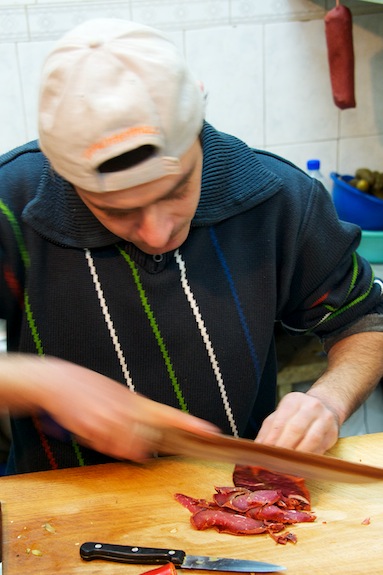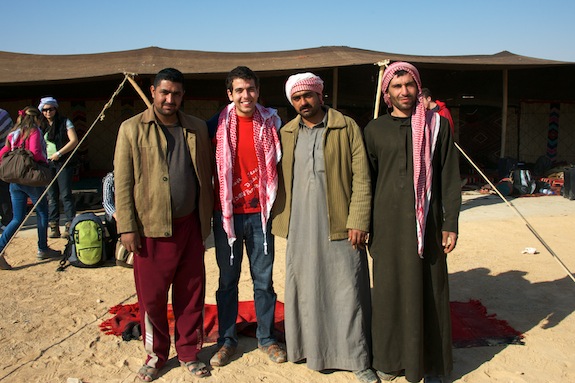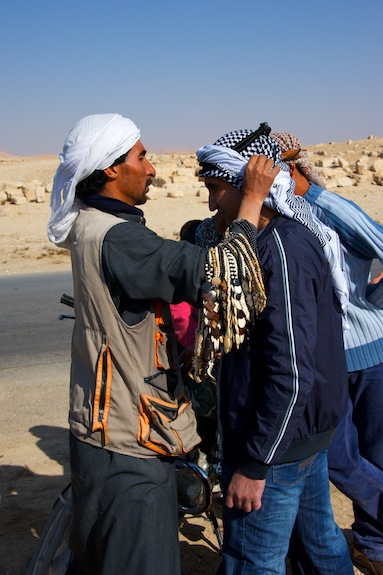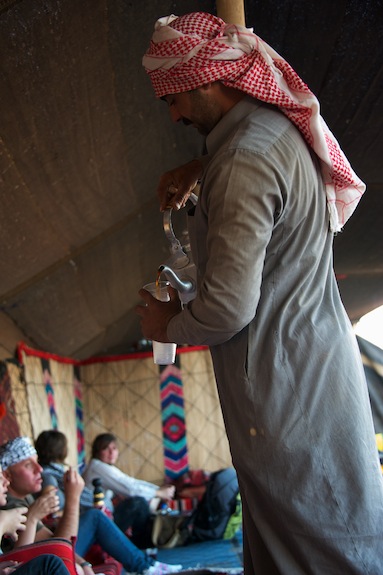Note: I wrote this post for the IIE Fulbright Blog about my Fulbright experience in Syria.
Lost, I strolled up to a middle-aged gentleman standing a few feet beside me who was leisurely munching on a bag of peanuts. I cleared my throat as I approached him. “Marhaba,” “hello,” I said in my peculiar Arabic accent. As the man turned to me, I asked if he could point me in the direction of the market.
There was no rush because there was never really a need to rush; everything in Aleppo happens in its own time. The man offered me some of his peanuts. I declined politely as he extended the snack-sized bag. I made sure to say “shokran,” “thank you,” so as to not offend, but he insisted. Having already lived here for a few months, I understood this was part of the intricate, Syrian hospitality waltz. It’s a well-established, figurative dance based on a set of unspoken rules. If you watch it take place between two locals, it can be quite beautiful — I was still learning. I explained how I had just eaten lunch and was absolutely stuffed. I followed with a comment about how delicious my meal had been, and he smiled and instructed me to follow him.
We exchanged stories as we walked down the busy street. I mentioned that I was a Fulbright student studying food in Aleppo; he chuckled and assured me I had come to the right place. In fact, most Arabs and food scholars consider Aleppo to be the culinary capital of the Middle East. Historically situated along the Silk Road, Aleppo has served as the home for a myriad of cultures — Armenian, Circassian, Greek, Jewish, Kurdish, and Turkish. They have all played a role in shaping what Aleppan food is today.
The conversation with the older gentleman went smoothly, as if I were chatting with an old friend. Once he knew I was there to study lunch, he began to tell me of all the dishes I needed to taste. As we passed prominent landmarks, he interjected to explain how I could find my way in case I ever got lost again. He insisted on walking with me until he felt confident I could find the market. As we arrived to the point where we were to part ways, he extended his bag of peanuts another time. I couldn’t say no, not after all this, that would be considered, “Aaeeb,” or “shameful.”
I politely grabbed a couple peanuts from the small bag and tossed them in my mouth. They were dry-roasted and salted, and actually very tasty. I thanked him again, “shokran,” and repeated it a couple more times. He responded by extending his open hand across his chest, over his heart, saying, “ya meet ahlan w sahlan,” which roughly translates into “oh, you are most welcome, a hundred times over.”
In Syria and across much of the Middle East, symbolic gestures, however small, can have significant social implications. These gestures are equivalent to the imperceptible signals exchanged between two dance partners on a dance floor. Placing your hand over your heart is understood to be a gesture of openness and sincerity. Numbers also play an important role in social exchange. Many Arabic phrases can be reinforced by a quantitative amount. For instance, if you want to congratulate someone, you can say “mabrook.” But for emphasis, you would say, “alf mabrook,” which literally means, “a thousand congratulations.” Even ordinary exchanges can sometimes trigger the waltz. The expression for “good morning,” is “sabah al kher,” literally “morning of goodness.” A standard response would be, “sabah al noor,” or, “morning of light” but you might also hear, “ya meet sabah,” which translates into, “one hundred beautiful mornings.”
During my stay in Syria I met many people like the middle-aged man who were interested in getting to know me, and vice versa. Conversations that started about eggplants and parsley unraveled into stories of love and companionship, culture and politics.
These exchanges, however imperceptible, are indicators of a larger dance meant to teach us about one another. They are ways in which we can participate in each other’s cultures and form relationships based on mutual understanding. I consider these interactions to be the highlights of my Fulbright in Syria. These are the interactions I carry in my heart and continue to share on my blog in an effort to continue the waltz I started almost one year and one month ago.
Assorted photos from my Fulbright:









Note: For more photos from my Fulbright in Syira, please visit my Flickr account.
Great article, you captured what it feels like to be a stranger in Syria. I love the language they speak in Syria. Yes it’s Arabic like their neighbors but there’s a certain poetry in the words they use that makes it so close to the heart. Whether they’re praising, thanking or complaining, they have such an eloquent way of describing things that is very unique to the Middle East.
I’ve visited Damascus many times and always wanted to go experience cuisine in Aleppo – It’s heartbreaking that fear keeps people out of beautiful Syria because of what’s going on now. I hope all their conflicts end soon, they pick up the pieces and and revive the most hospitable experience and best food in the Middle East!
Wow, what a great essay and beautiful pictures! You’ve managed to perfectly describe what makes middle-eastern hospitality so unique. I miss home now! 🙂
Thanks for the gorgeous pictures. I’m dreaming of going now.
Tony, reading this article makes me miss Syria so much. It was like closing my eyes and dreaming of the walks to the local markets, and the “khoudargy” down the street. In my opinion the best way to experience any culture is through its food. So much love goes into making food, that love is unraveled into the stories you mention and that is how one experiences that culture. There is a lot of love in all your work and I admire you for it. So, thank you for taking me on a short trip home.
I enjoyed it 🙂
-Alan
Fabulous writing and photos, as always! You bring such a thoughtful perspective to your experiences.
Looking at this beautiful pictures,makes me wonder are all this people still smilling ? Are they still alive? How long it will take till we’ll be able to see them smilling again?!
Tony, this is a great post – It makes want to be there to experience your experience!
Love the story and photos, i always wanted to visit Syria for the food, hopefully the current problems will be sorted out soon and the country and its people can live in peace.
Hi Tony,
Hoping your family & friends in Syria are safe!!
Antonio I have been living in Lebanon for a long period of time…We share the same culture…attitudes towards guests..It is the first time I notice the word meet ahlan…it refers to 100 welcome.. or alf mabrouk..1000 congratulations….I like your article a lot..and ..and I like how great it is to meet welcoming people from Aleppo or any place in the world
I’m filled with longing for my birthplace. Syrians are always kind without any expectations in return. I’ve never felt so homesick as I do right now. Bless you for your blog and insight.
Antonio —
This is the second time I have stumbled upon your blog and once again you’ve brought a smile to my face and tears to my eyes. You capture the very essence of Aleppo in your beautiful writing and I hope you will continue your wonderful work on here.
Funnily enough, it appears that we were in Aleppo at the same time and that we have a couple of mutual friends there. Inshallah, I hope I see you there again one day.
أنا أتمنى لك كل النجاح
Hello. I realize you posted this several years ago. I am in Canada and my husband and I have sponsored a family of Syrian refugees. They are a wonderful family of Iman and Muhammed and their four young children. They are from Allepo . Iman and I have bonded over food. She is the daughter I never had. I love her and her family, in fact they are part of our family now. I have learned so much from her about glorious Syrian food and culture. I was looking for a few more recipes to add to my collection when I found your blog. Thanks for bringing this wonderful culture and it’s beautiful people to the rest of the world. Much has changed in Syria and Allepo in particular. The city has nearly been wiped from the map. It will take generations to rebuild if that is ever possible. Such sadness, and madness.
Hello JoAnn. Sorry for the late reply. Thank you for sponsoring a family of Syrian refugees. It makes me happy to learn that food is what has brought you and Iman closer together. A lot of Syrian dishes are collaborative in nature and require a team of willing hands to prepare a meal. It’s a beautiful social experience that I continue to cultivate with my friends and community here in the US. I hope you and your extended Syrian family are doing well!